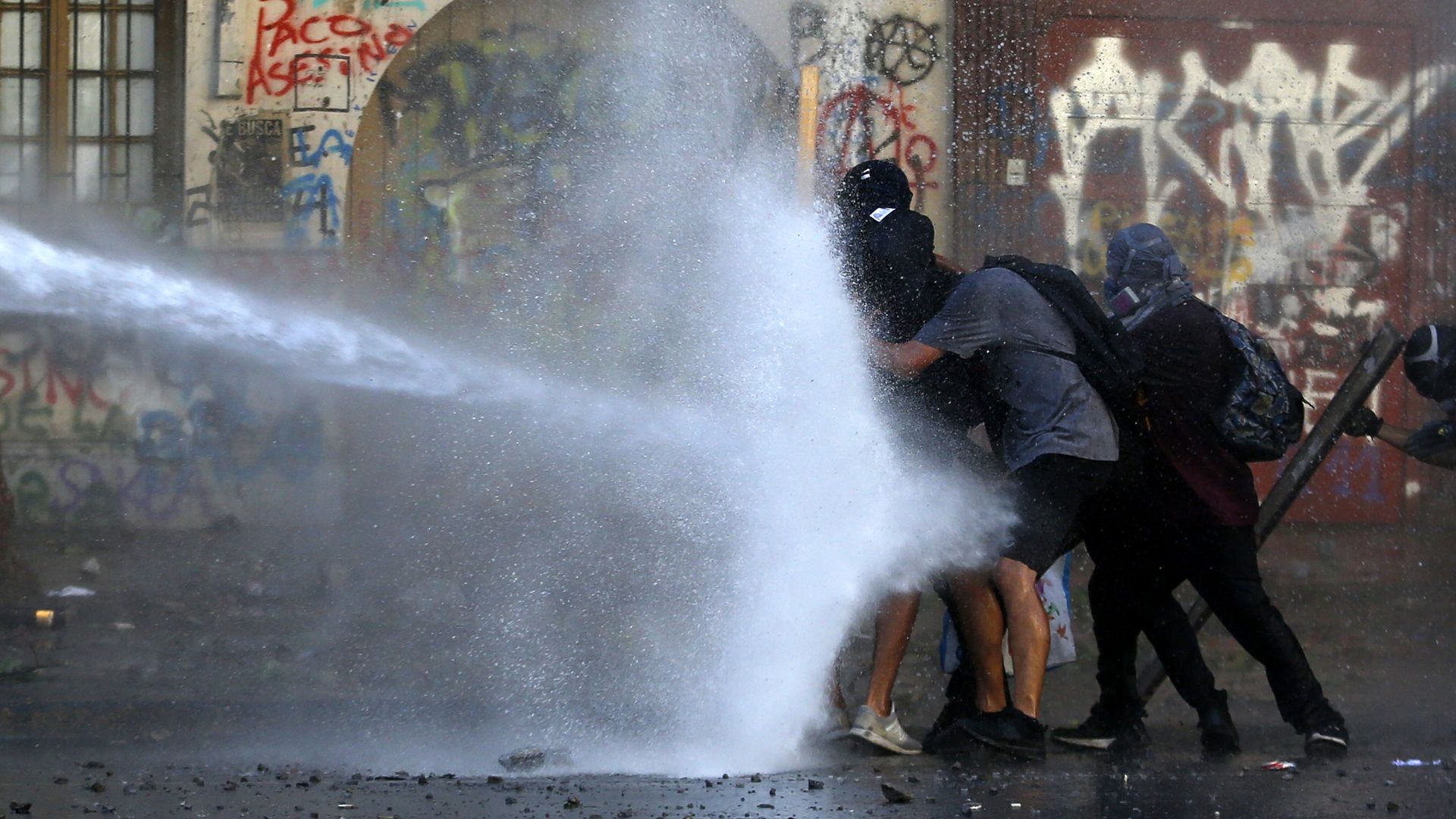Nov 21, 2019 - Technology
South America's uprisings are about more than politics
Add Axios as your preferred source to
see more of our stories on Google.

Taking cover from a water cannon in Santiago, Chile. Photo: Marcelo Hernandez/Getty Images
Add Axios as your preferred source to
see more of our stories on Google.

Taking cover from a water cannon in Santiago, Chile. Photo: Marcelo Hernandez/Getty Images